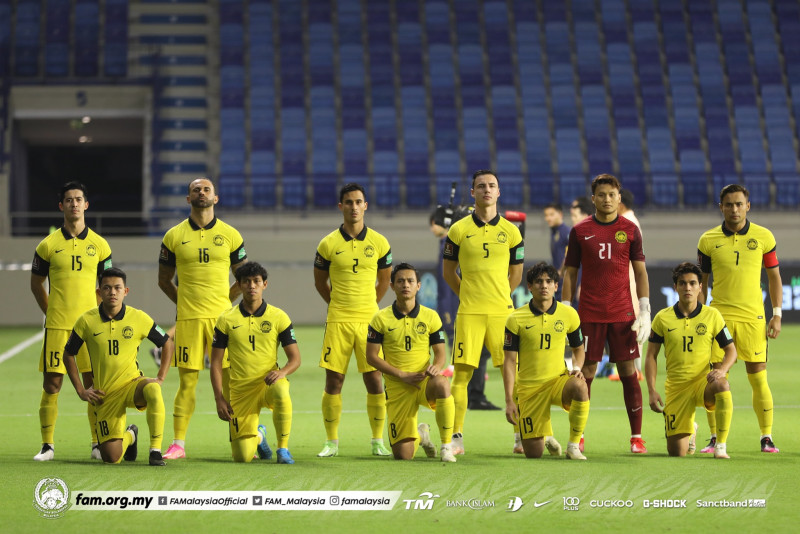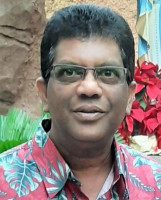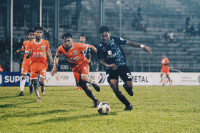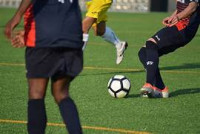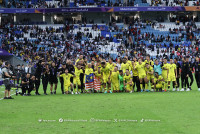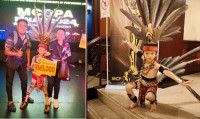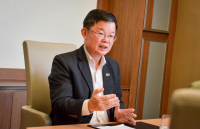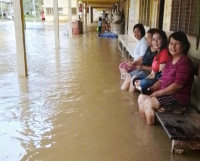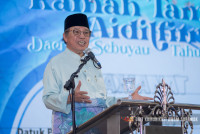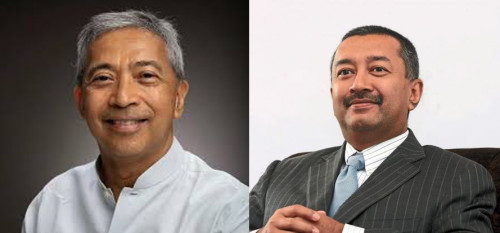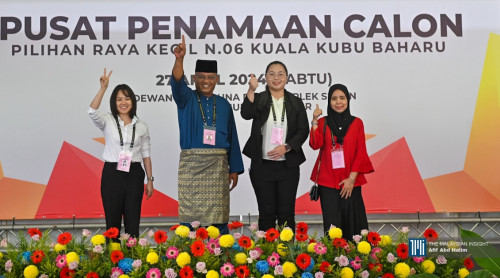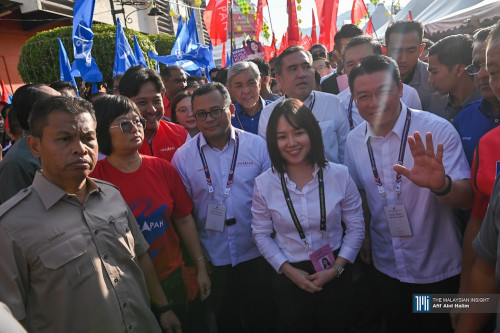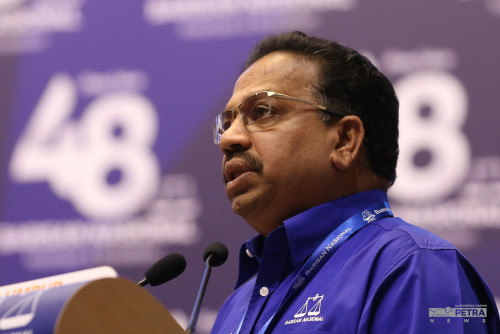SPORTS is entertaining and is even seen as a unifying factor of communities, states, and nations by all and sundry. We see this in major world sports events such as the Olympic Games, the Commonwealth Games, the FIFA World Cup and other epic global sports events.
However, alongside, we also see some issues cropping up in sports and dominating the headlines. These are stories that are beyond the wins and losses, stats and superlatives – issues that are sadly divisive and in Malaysia, revolving around the ill-favoured side of geopolitics.
On February 2, 2016, a local news portal carried a headline “Harimau Malaysia is national squad’s new name”. Briefly, the news report said the name change from the previous Harimau Malaya was a bid to be more inclusive.
It is to show that the national football squad belongs to all Malaysians, including those in Sarawak and Sabah – who had felt alienated from the Malaysian mainstream by the name of Harimau Malaya.
Geopolitically, Malaya refers to West Malaysia before Sarawak, Sabah (North Borneo) and Singapore congealed to form the Federation of Malaysia on September 16, 1963. The news report further explained that Harimau Malaya was derived from the name of the country’s tiger subspecies (Panthera tigris tigris).
The report quoting then Football Association Malaysia (FAM) president Yang di-Pertuan Agong Al-Sultan Abdullah Ri'ayatuddin Al-Mustafa Billah Shah as saying since there are no tigers in the jungles of Borneo, the new name is more appropriate.
Tengku Abdullah had also pointed out then that the old name Harimau Malaya was not suitable as it was not used widely in the country after the formation of Malaysia in 1963.
Former FAM vice-president Datuk Sudarsono Osman also hailed the change of name as an initiative to recognise the contribution of the people of Sarawak and Sabah to national football.
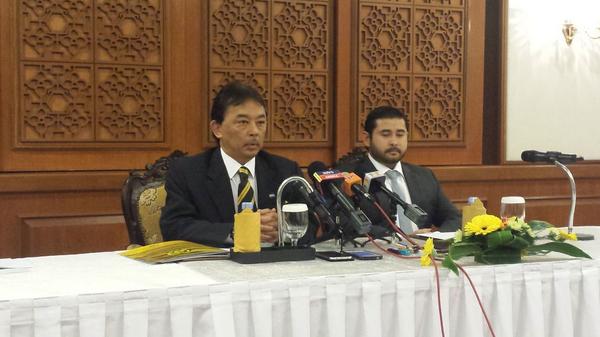
Tengku Abdullah lent a little-known flavour to the name Harimau Malaya, saying it was first used in local football to refer to the formidable Johor-born national striker the late Abdullah Mohd Don of the 40s and 50s whom Indonesian President Sukarno in 1953 hailed as “Harimau Malaya” after the “Malayan Tiger” which is endemic to the country. Abdullah passed away at the age of 91 in 2014.
Tengku Abdullah said during the 2016 name change, Harimau Malaya is no longer relevant because the country has not been known as Malaya since it joined Sabah, Sarawak and Singapore.
A year earlier there were already sentiments for a name-change expressed by several quarters.
Khairy Jamaluddin, then youth and sports minister, told local media a name such as Harimau Malaysia, which reflects the contribution of Sabah and Sarawak to Malaysian football and to appreciate football lovers and supporters from East Malaysia, would be more suitable.
Ordinary folks of East Malaysia welcomed the name change as they had always perceived the term “Malaya” in derision and contempt – having always wanted to be distant from anything that is “Malayan”, a term they regularly associate with oppressiveness, largely over the unfulfilled Malaysia Agreement of 1963.
However, a little over a year later sports news headlines on April 4, 2017, baulked: “Harimau Malaysia now back to Harimau Malaya”.
The national squad had reverted to its previous and original name of Harimau Malaya after just over a year of rebranding – when Johor Crown Prince Tunku Ismail Ibrahim took over the helm of FAM as president.
FAM said the “name change” back to Harimau Malaya was in response to clamour from football fans in West Malaysia and a decree from the Johor Crown Prince.
“The national squad will revert to the old and original name since its formation,” said then FAM secretary-general Datuk Hamidin Mohd Amin. He said the reversion to the old name was to resonate with historic moments created by the national team during its glory days.

‘Callous flip-flopping!’
Politician and author Lina Soo is piqued by what she describes as a callous flip-flopping in finalising the national squad’s name as Harimau Malaya.
“Certainly, as a Sarawakian, I am very piqued that the national football team is called Harimau Malaya without regard to our football players, our vast pools of sports-loving football fans and the national integrity of the Borneo States.
“Such arrogance! Excluding the Borneo states of Sarawak and Sabah by reverting to the original name of Harimau Malaya smacks of sports apartheid.
“It speaks of unwarranted superciliousness and insensitivity to the feelings and sentiments of Sarawakians and Sabahans for whom football is the most popular game among youths.”
Soo says there must not be any form of discrimination or politics coming into play in sports.
“But such ethics are simply shoved aside to emanate ignorance and artlessness where sports is no longer about being sporting. Where teamwork is no longer about collaborative effort and selflessness, but about alienation and schism,” she added.
Another Sarawakian, Lily Liew, is disappointed by the reversion to the original name of Harimau Malaya as the name for the national squad.
“Sports does not exist only for the sake of physical exercise or to build a healthier community. Sports enhances social and cultural life by bringing together individuals and communities around the world and between states within a federation.

“It can be a bridge that encourages dialogue, thereby helping to break down prejudice, stereotypes, cultural differences, ignorance, intolerance and discrimination. This is especially pertinent in our own experience as Borneo Malaysians and West Malaysians.
Liew says to generate and foster convivial bonding between both the communities separated by the huge expanse of the South China Sea – football is one way of moving forward as it is universal and popular among people everywhere.
“Naming our national soccer squad as Harimau Malaya simply excludes East Malaysians from the national mainstream of football.
“The name itself is divisive. It somehow divides us, Sarawakians and Sabahans evoking a sense of separated-ness. Are we not part of the national squad? We too had our boys playing in the national team before.
“Malaysia consists of 14 states that include Sabah and Sarawak, therefore, the right name should be Harimau Malaysia. I hope in conjunction with Malaysia Day today, our national squad will be renamed Harimau Malaysia,” adds Liew, a court interpreter.
Another Sarawakian, fitness coach Luke Nikol, agrees with Liew that the name Harimau Malaysia is more inclusive and brings the people of the peninsula, Sabah and Sarawak into a fraternal community.
“Harimau Malaya only relates to ‘semenanjung’ and excludes the people of Sarawak and Sabah,” he pointed out.
Politician and Selangau MP Baru Bian agrees that sports of whatever kind must bring people and communities together.
He says: “Naming our Malaysian football team Harimau Malaya does not reflect the spirit of Malaysia. It doesn't matter whether there are Sabahans or Sarawakians on the team.
"The name should reflect our identity as Malaysians even if there are no East Malaysians in the national squad now. I am also surprised that there are no players from Sarawak and Sabah in the current national team.”
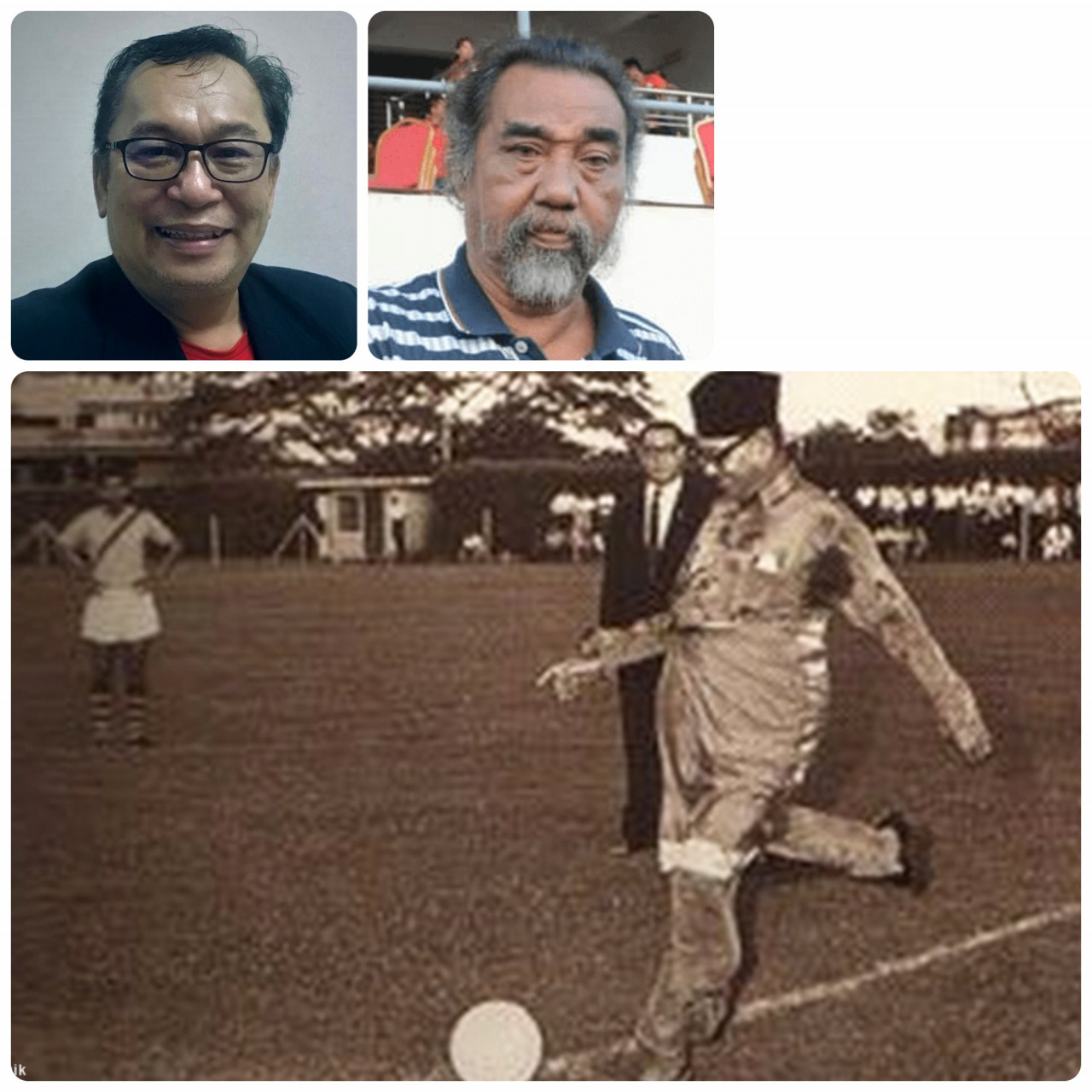
Baru Bian asks whether Sarawakian and Sabahan boys are not good enough to play football and to be included in the national line-up.
“The problem is, those in the selection committee are all West Malaysians. Maybe they are not bothered to pick our good players. Either they are biased or have the perception that we East Malaysians are only second best to them,” adds Baru Bian who is also assemblyman for Ba’kelalan.
Fifty-eight years after Malaysia was formed with Sarawak and Sabah counted in, the two Borneo states are still engaged in a schoolboy-like tiff with their West Malaysian counterparts.
“They won’t let us play ball with them!” is another sore point of the spat. Fifty-eight years is a long time and there has been an enormous churn of discord between both, East and West Malaysia over the decades.
What has gone wrong? Bobby William puts it in context. “Each time I arrive at the airport in Kuala Lumpur, the taxi driver realising I am from Sarawak says ‘Selamat Datang ka Malaysia'. And I somewhat get miffed with this reception.
“Please stop perceiving us as foreigners,” says the Parti Bansa Dayak Sarawak president.
“Are we not Malaysians, too? And equal partners within the federation as Tunku Abdul Rahman promised, when the idea of Malaysia was first mooted? We cannot forget his famous football one-liner, ‘Bola itu bulat’ (the ball is always round). Kick it to the right side and it can spin away to the left.'
This is what Tunku said, suggesting that the soccer ball does not favour any particular side, it is non-biased and non-prejudicial,” adds Bobby.
For now, the East-West spat will linger on as long as Sarawakians stand belligerent on “ngap sayot” mode and West Malaysians refuse to extend a “sporting gesture” in geopolitical co-existence. – The Vibes, September 16, 2021
NOTE: “Ngap Sayot” is an Iban catchword meaning to attack and win. It was very popular during the heyday of Sarawak’s football team in the 80s and 90s, led by coach Awang Mahyan.



